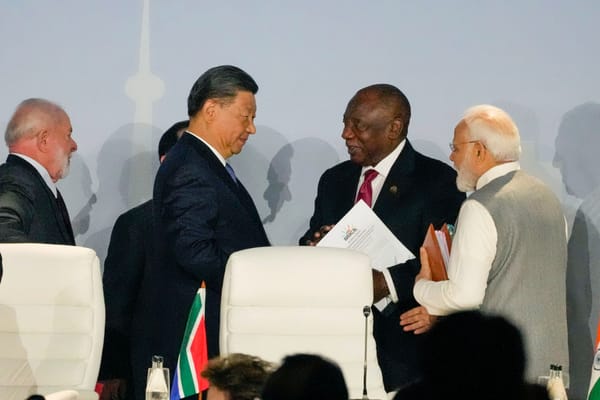China’s Belt and Road Initiative has transformed the economies of the Middle Kingdom and of the Global South. By 2019, China had relocated a high proportion of labor-intensive industries like textiles, apparel, toys, sporting goods, and footwear, to the benefit of Vietnam, Indonesia, Bangladesh, and other low-cost venues. By the following year, China had lent $1.5 trillion to developing countries across the world to finance exports and investment. Today, China exports more to the Global South than to all developed markets combined.
What’s less appreciated in the West is the profound impact of what Chinese officials call the Digital Silk Road: Beijing’s effort to penetrate the Global South’s digital ecosystems, especially via artificial intelligence, thus reshaping entire regional political economies to its preferences.
In 2015, as an investment banker working for a Hong Kong boutique, I arranged a tour of the Chinese tech conglomerate Huawei’s Shenzhen headquarters, with its sprawling exhibit hall, for the Mexican ambassador to Beijing. At the end, we sat in a small amphitheater to hear a Huawei employee lecture the Mexicans on how broadband could transform their economy. It was a well-researched pitch, and afterward, I learned that the firm has developed detailed, customized digital plans for 100 countries.
The combination of mobile broadband and AI portends an economic upheaval in parts of the Global South, starting in developing Asia. AI is a poor substitute for the higher functions of the human brain, but it works wonders in relieving drudgery for some of the world’s poorest people.
